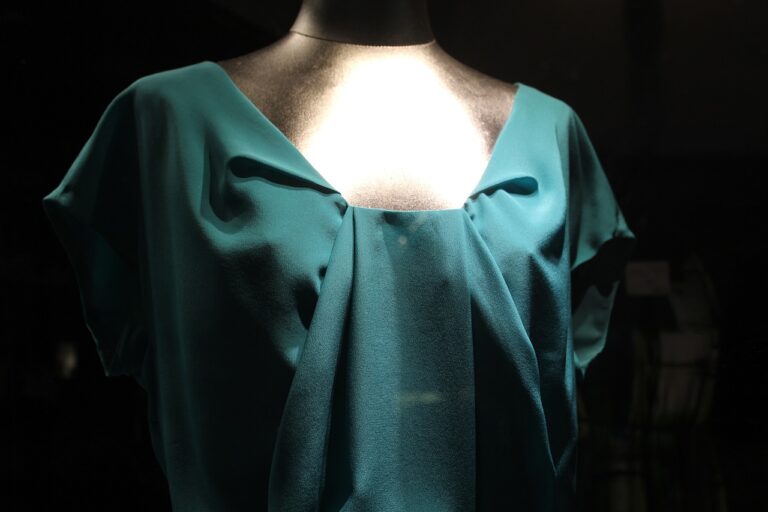Unlocking the Potential of Personalized Fashion Recommendations: Betbhai9 whatsapp number, Radhe exchange admin, Lotus365.win login
betbhai9 whatsapp number, radhe exchange admin, lotus365.win login: Fashion is a form of self-expression that allows individuals to showcase their unique style and personality. With the rise of online shopping and social media influencers, personalized fashion recommendations have become increasingly popular. These recommendations use algorithms and data analysis to suggest clothing items based on a user’s preferences, browsing history, and purchase behavior.
By unlocking the potential of personalized fashion recommendations, retailers can create a more tailored shopping experience for their customers, ultimately driving sales and customer satisfaction. In this article, we will explore the benefits of personalized fashion recommendations and how retailers can harness this technology to enhance their e-commerce offerings.
Understanding the Power of Personalization
Personalization is the key to unlocking the potential of fashion recommendations. By collecting and analyzing data on a user’s browsing behavior, past purchases, and style preferences, retailers can offer more relevant and targeted recommendations. This not only improves the overall shopping experience for the customer but also increases the likelihood of converting a browser into a buyer.
One of the main benefits of personalized fashion recommendations is increased customer engagement. When a customer feels like a retailer understands their style preferences and offers them relevant suggestions, they are more likely to spend time browsing the website and making a purchase. This can lead to higher conversion rates and repeat business from satisfied customers.
Additionally, personalized fashion recommendations can help retailers stand out in a crowded market by offering a more unique and curated shopping experience. By leveraging data and algorithms to suggest items that are tailored to each individual customer, retailers can differentiate themselves from competitors and build brand loyalty.
Implementing Personalized Fashion Recommendations
Implementing personalized fashion recommendations requires a combination of technology, data analysis, and creative thinking. Retailers can use machine learning algorithms to analyze customer data and predict which items are most likely to appeal to each individual customer. This data can then be used to generate personalized recommendations on the website or through targeted marketing campaigns.
To effectively implement personalized fashion recommendations, retailers should focus on collecting high-quality data from customers. This includes tracking browsing behavior, monitoring past purchases, and allowing customers to input their style preferences. By gathering as much data as possible, retailers can create more accurate and relevant recommendations for each customer.
In addition to using data analysis and algorithms, retailers should also leverage the expertise of fashion stylists and curators to create personalized recommendations. Human input can help ensure that recommendations are not only based on data but also take into account current fashion trends, seasonal styles, and the customer’s unique preferences.
Maximizing the Impact of Personalized Fashion Recommendations
To maximize the impact of personalized fashion recommendations, retailers should continuously analyze data and optimize their algorithms. By monitoring customer feedback, tracking sales data, and testing different recommendation strategies, retailers can fine-tune their personalized recommendations to better meet the needs and preferences of their customers.
In addition, retailers should also consider integrating personalized fashion recommendations across all touchpoints, including the website, mobile app, email campaigns, and social media channels. By creating a seamless and consistent shopping experience across all platforms, retailers can enhance customer engagement and drive sales through personalized recommendations.
Furthermore, retailers can use personalized fashion recommendations to upsell and cross-sell products to customers. By suggesting complementary items or related accessories based on a customer’s purchases, retailers can increase the average order value and drive additional revenue.
FAQs
Q: How do personalized fashion recommendations work?
A: Personalized fashion recommendations use algorithms and data analysis to suggest clothing items based on a user’s preferences, browsing history, and purchase behavior.
Q: How can retailers implement personalized fashion recommendations?
A: Retailers can implement personalized fashion recommendations by collecting high-quality customer data, leveraging machine learning algorithms, and incorporating human input from fashion experts.
Q: What are the benefits of personalized fashion recommendations?
A: The benefits of personalized fashion recommendations include increased customer engagement, differentiation from competitors, and higher conversion rates.
In conclusion, personalized fashion recommendations have the potential to revolutionize the e-commerce industry by offering customers a more tailored shopping experience and driving sales for retailers. By leveraging data, technology, and creative thinking, retailers can unlock the power of personalized fashion recommendations and create a more engaging and personalized shopping experience for their customers.







